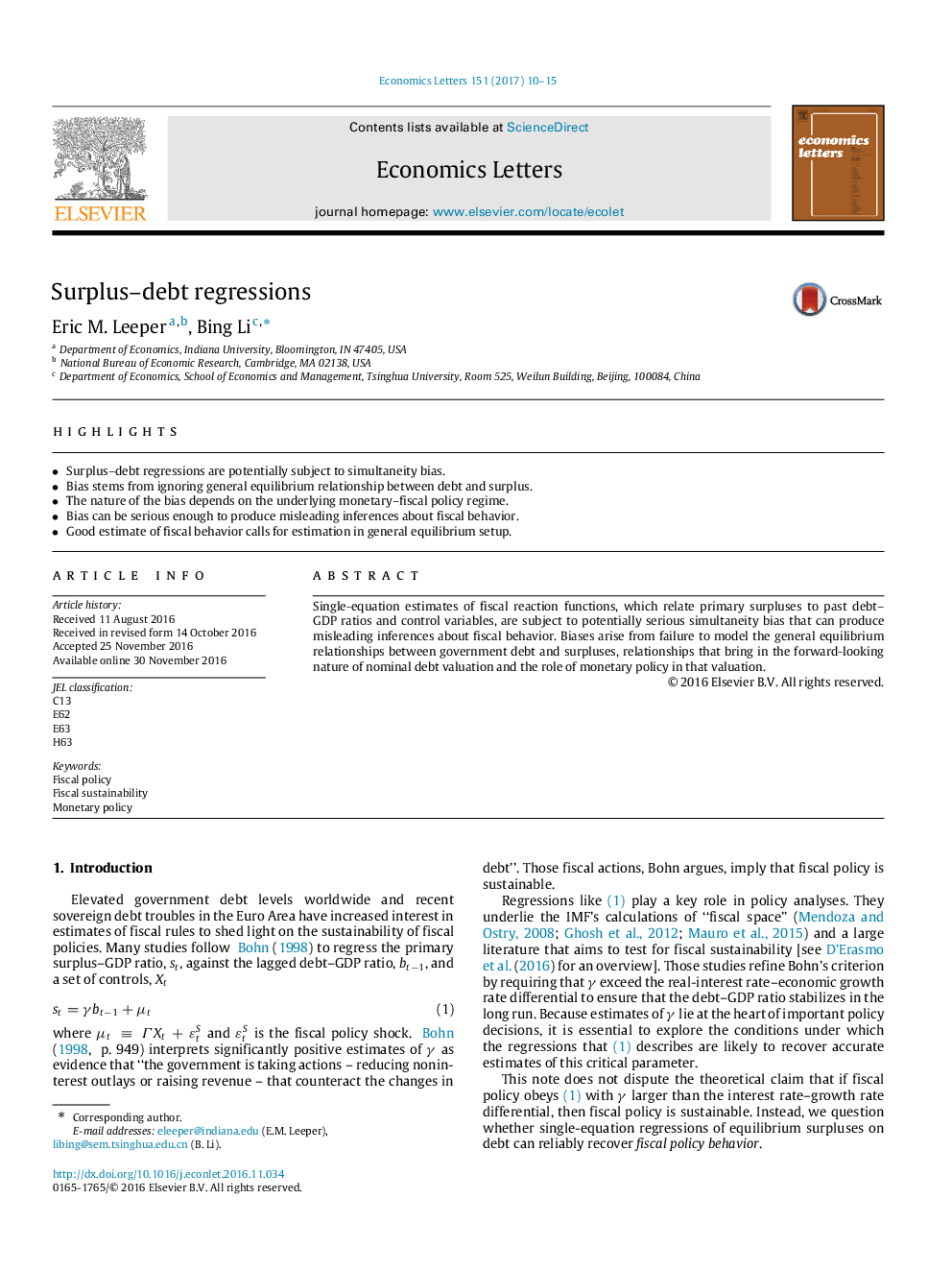| Article ID | Journal | Published Year | Pages | File Type |
|---|---|---|---|---|
| 5057904 | Economics Letters | 2017 | 6 Pages |
â¢Surplus-debt regressions are potentially subject to simultaneity bias.â¢Bias stems from ignoring general equilibrium relationship between debt and surplus.â¢The nature of the bias depends on the underlying monetary-fiscal policy regime.â¢Bias can be serious enough to produce misleading inferences about fiscal behavior.â¢Good estimate of fiscal behavior calls for estimation in general equilibrium setup.
Single-equation estimates of fiscal reaction functions, which relate primary surpluses to past debt-GDP ratios and control variables, are subject to potentially serious simultaneity bias that can produce misleading inferences about fiscal behavior. Biases arise from failure to model the general equilibrium relationships between government debt and surpluses, relationships that bring in the forward-looking nature of nominal debt valuation and the role of monetary policy in that valuation.
